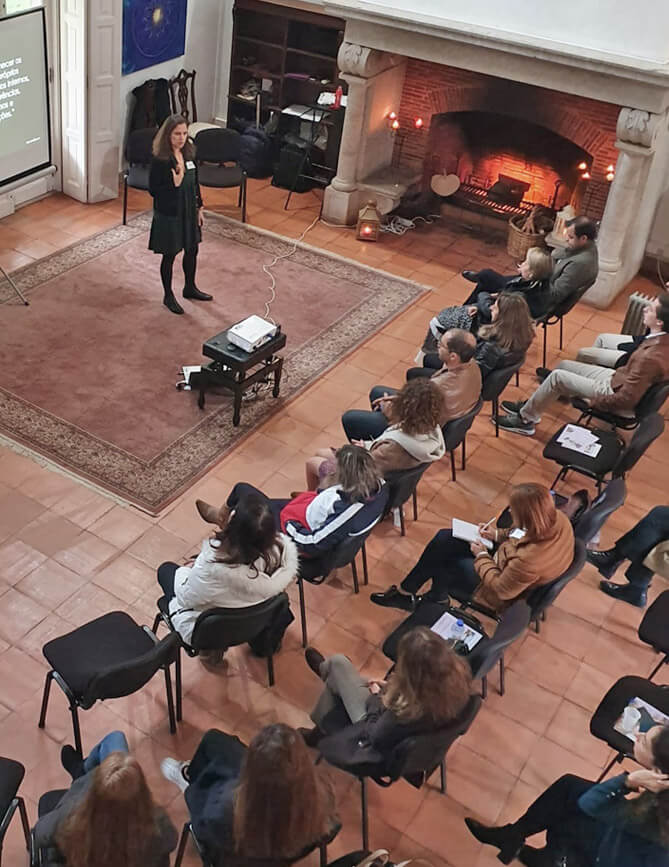During these years when I have facilitated mindfulness programs and sessions, I heard something like this several times: “I can’t meditate. I’ve tried, but it’s not for me”. For many, the initial experience with Mindfulness practice (especially with meditation) is one of frustration and restlessness, which usually leads them to give up. Most of the time what is at the roots is a false expectation that “through practice you will automatically feel calmer and more relaxed, in a kind of nirvana and free of thoughts”.
Mindfulness has been increasingly promoted in recent times. Of course, its popularity has increased, but also misinterpretation around it. No doubts, there are many benefits from the practice of Mindfulness and there is plenty of scientific evidence to support them. But to get the most out of the practice, I will say that “the very first step is to drop unrealistic expectations”.
I am not suggesting at all that that the practice of mindfulness is not extremely impactful and transformative. It is. What happens is that the most common, unrealistic expectation is “benefits will happen quickly and easily”
The ability “to be aware at the present moment and to observe whatever is happening with curiosity and kindness” is something natural to all of us since we were children. However, it is also true that we stop exercising this capacity and that we are fully involved in a world of mind-blowing rhythm surrounded by tons of distractions. This is the reason why the practice of Mindfulness is something simple and difficult at the same time.
We do not feel in good shape after two weeks in the gym. Nor we do know how to speak a foreign language fluently after just a few classes. Both require intention, persistence, resilience, patience and a lot of practice. Mindfulness does also.
It is a continuous learning process, a path. Even for those who persist, despite the notorious benefits, the process is often challenging, with ups and downs, with calm and restlessness, with advances and recoils. My experience says that a key success factors to benefit from (the practice of) Mindfulness is to clarify the myths and to clear the expectations by better understanding the process:
- Stopping and watching whatever is happening (both inside us and around us), especially if we are not used to it, at first can bring an “overwhelming feeling”, fully in opposition to the calm that is expected. Mindfulness opens an opportunity to observe the “confusion” around, inside and outside, and this is usually an uncomfortable experience.
- Stepping out of automatic pilot also means becoming aware of our own beliefs and values, which pushes us to question old beliefs deeply instilled inside us. Then, we maybe recognize that we no longer identify with them and choose to change the way we relate to situations and to others.
- Mindfulness practice usually start with a specific intention: manage stress and anxiety, be more focused on work, improve resilience… But when practiced consistently, Mindfulness becomes a way of life that spreads at all levels: at home, at work, sexuality, parenting, family relationships and social intervention. Sometimes, if the old is not aligned with the new, disruptions in our life can happen.
- Recognizing and accepting our emotions, be them pleasant or unpleasant, with curiosity and equanimity is not an easy process. Also, dealing with emotional pain can “unpack” trauma situations that could need some extra care and healing.
- In my experience, as I like to say, “greater awareness (of oneself, of the other, of the world) brings greater responsibility”. When coherence is not present, discomfort arrives extremely easy and fast.
The benefits of Mindfulness have been covered in a previous article and will certainly be explored in future ones. They are real and notorious. The practice of Mindfulness is one of the most powerful tools at hand to improve mental health and experience life in a more present, intense and joyful way. But to reach this, as I like to say at the beginning of my practices, “I invite you to bring in the intention and to drop out the expectation”.

